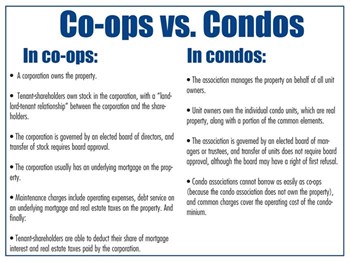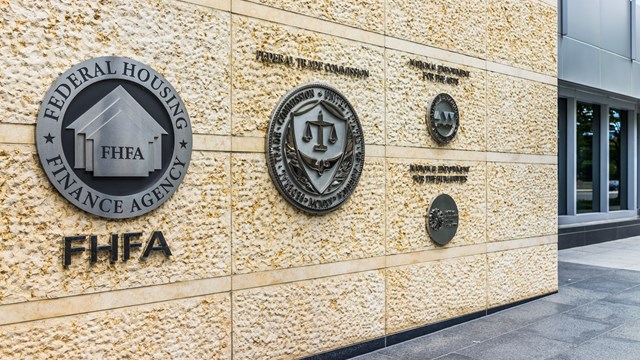
Taking care of a condo or co-op building’s budget and finances is a big job. Handling such large sums of money is an important responsibility, and not every shareholder or unit owner has the expertise to do the job well. Sure, most people know the that the amount of money going out shouldn’t exceed the amount of money coming in, and people with even a small amount of financial experience know the difference between the capital budget and the operating budget.
But it’s much more complicated than that. And because it is so complicated, running a community's books often becomes a joint effort, involving the board, manager, accountant and others. It’s important to get anyone who has any relevant expertise into the mix—and part of the process is knowing some basic terms and concepts that apply to multifamily communities, whether condo, co-op, or HOA.
First Things First
First, let’s look at some of the main components of a typical co-op or condo building’s financial profile. According to Richard Montanye, CPA, a partner at the accounting firm of Marin & Montanye, LLP in Uniondale, New York, these include working capital position, available cash, capital reserves, long-term debt and budget status.
Stephen Beer, CPA, a partner with the certified public accounting firm of Czarnowski & Beer, LLP in New York City, adds that because people look at a building’s financial statements to see if there is adequate money for projects, there should be a “floor” for reserves. “We use about $2,000 per unit as a minimum reserve fund,” he says. You might have $200,000 and a $100,000 reserve fund, but you can’t really spend all that money.”
Much of the needed information can be found in the co-op or condo development’s financial statements. These include the balance sheet (reporting assets and liabilities); a statement of revenues, expense and accumulated surplus or deficit; the statement of cash flows (a reconciliation of the balance of cash at the beginning of the year to the balance at the end of the year); notes to financial statements and more.
There are also important differences between a co-op’s finances and those of a condo or HOA. Abe Kleiman, CPA, managing partner with the accounting firm of Kleiman & Weinshank, LLP in Manhattan, gives a good rundown of how things work in each type of development.
In co-ops, he says:
• A corporation owns the property.
• Tenant-shareholders own stock in the corporation, with a “landlord-tenant relationship” between the corporation and the shareholders.
• The corporation is governed by an elected board of directors, and transfer of stock requires board approval.
• The corporation usually has an underlying mortgage on the property.
• Maintenance charges include operating expenses, debt service on an underlying mortgage and real estate taxes on the property.
• Tenant-shareholders are able to deduct their share of mortgage interest and real estate taxes paid by the corporation.
In condos, on the other hand:
• The association manages the property on behalf of all unit owners.
• Unit owners own the individual condo units, which are real property, along with a portion of the common elements.
• The association is governed by an elected board of managers, and transfer of units does not require board approval, although the board may have a right of first refusal.
• Condo associations cannot borrow as easily as co-ops (because the condo association does not own the property), and common charges cover the operating cost of the condominium.
More Basic Concepts
Let’s delve a little further into the subject. As we’ve mentioned, one important difference is that a co-op may find it easier to get loans because it has the buildings and the land on which they stand as collateral.
In a condo, on the other hand, its ability to borrow is based on cash flow, according to Carl Cesarano, CPA, a principal with the accounting firm of Cesarano & Khan, P.C., in Floral Park, New York. “In condos,” he says, “getting financing is a whole different ball game. You are budgeting a surplus.”
Whatever type of building you have, there are several basic budgeting concepts that the average board member should understand in order to effectively manage that community’s finances. Again, the pros say, it can be broken down into several basic points.
The annual operating budget must be balanced. Operating costs must be covered by maintenance or common charges from owners and other regular sources of income.
The development should establish a long-term capital budget (5 to 10 years), and should budget for future repairs and replacements.
Capital budgeting should also include a funding plan (regular assessments, periodic special assessments, earmarking specific sources of revenue such as transfer fees, borrowing, etc.).
Beer adds that, in his opinion, accrual budgeting is a better system than cash budgeting. “In a cash system,” he says, “you wouldn’t see bills unless you had paid them.” You also wouldn’t see payments until they are actually received.
In an accrual system, on the other hand, income is counted when the sale occurs, even if you haven’t received it yet, and expenses are counted when you receive goods and services, even if you haven’t made a payment yet. In addition to how much you have on hand, an accrual system also includes how much you owe and how much you’re entitled to.
The Budget Process
How does a board begin their budget for the coming fiscal year?
To begin with, they don’t start from scratch. They use the past year’s budget as a starting point. Then, they typically factor in predictions and expected changes, such as changes in real estate taxes (for co-ops), union contracts (which affect the wages paid to building or association staff), fuel costs, changes in assessed value of real estate and changes in water and sewer rates, and insurance premiums, for example.
Expected expenses should also be factored in. “Sometimes you know there will be more repairs,” says Beer. “Maybe you just replaced your elevator. You didn’t at first have to pay maintenance charges on it (because the contract included several months of free elevator maintenance), but now you do.”
And, Beer stresses, predictions are just that—predictions. Projecting a budget is not an exact science. “Last year was a cold winter, and we all thought this year would not be as cold. It turned out to be colder, but some co-ops and condos went to less use of fuel oil in their budgets—we didn’t expect two cold winters in a row.”
According to Cesarano, a typical operating budget worksheet, and all sorts of expenses, both past and projected, are represented: Wages, payroll taxes, employee benefits, real estate taxes, interest expense, pre-payment premium, fuel, utilities, water and sewer, repair and maintenance, supplies, insurance, management fees, professional fees, licenses and permits, state and local franchise taxes and “other.”
Expertise
Clearly, budgeting is a complex undertaking that isn’t for novices. Buildings and HOAs definitely need to have a professional to guide their decisions. In most cases, the management company retains outside accountants who are often consulted for important transactions, such as sale or acquisition of units, funding of capital projects or assessments.
Self-managed buildings typically deal directly with their outside accountant. “Self-managed buildings actually need their professional more,” says Montanye, “since they do not have an experienced agent to rely upon.”
Beer adds that in addition to hired accountants, these buildings often also rely on residents who have relevant experience. “He or she doesn’t have to be an accountant,” he says. “They could be a retired school administrator who knows about budgets, buying fuel, repairs.”
For Cesarano, the budgeting and financial process for co-ops and condos works best as a team effort. He provided a “Financial Activities Organizational Chart” that starts with the board of directors (for a co-op) or a Board of Managers (for a condo) at the top, and goes on to include the managing agent, the treasurer, the assistant treasurer, the finance committee, the CPA, the attorney and the engineer.
“Every co-op and condo should build a team of professionals,” he says. “The budgeting process should start with the manager, then have the team look at it. The accountant should be part of the team—the accountant is also the auditor and he has a lot of expertise. You need the expertise of an engineer. If there’s a tax certiorari attorney, get him on the team. Let your board look at it—they’re the real management. If you have your team in place, then you’ll come up with a good product.”
Everyone Makes Mistakes
What are some of the most common mistakes that boards make in terms of budgets?
Montanye feels that the most common mistake is having unrealistic expectations. “Sometimes boards will ignore professional advice and projections in favor of lower maintenance,” he says. “This makes subsequent decisions more difficult, since they first have to make up for a loss and then fund a much larger deficit which had been ignored previously.”
For Beer, one of the most common mistakes boards make when it comes to budgets is “reliance on property managers’ internal control structures—those are different at different property management firms. It’s important that the board monitor the property manager, monitor bills over a certain amount and make sure reserves are being used appropriately.
“There have been some high-profile frauds in the industry where the board placed too much reliance on the managing agent, and didn’t monitor them enough.”
Other common mistakes include deferring or avoiding maintenance increases, budgeting a deficit, failing to establish a long-term capital budget, and failing to fund future repairs and replacements that were identified in a long-term capital budget.
To help avoid these and similar problems, professionals recommend that board members keep close to the process, attend meetings, pay attention to details, don’t be afraid to ask questions, and seek the advice of your management company and your professionals (attorneys, accountants, engineers) whenever needed. Also, make sure your operating budget is balanced, remember to establish a long-term capital budget and have a realistic funding plan.
The Info Is Out There
If you need more information on the subject, there’s plenty out there. To begin with, organizations such as the Council of New York Cooperatives & Condominiums (CNYC) and the Federation of New York Cooperatives & Condominiums (FNYHC) hold lectures, publish material and hold conferences. The Community Associations Institute (www.caionline.org) also has several chapters in the New York metropolitan area, including the CAI Big Apple chapter, the CAI Long Island chapter and the CAI Hudson Valley chapter. There are also two chapters serving New Jersey.
Resources that can be accessed to help put together your budget are also online. Cesarano points out that Con Ed or National Grid (depending on where your building is located) has data on trends in natural gas pricing, with projections. Union contracts are also found online. “There is so much you can get.”
Of course, every building should have a CPA that they can rely on. Beer’s firm conducts webinars and has many videos on its website on related topics, such as the “Budget Process for Cooperatives and Condominiums,” “Maximizing Other Revenue in Your Cooperative or Condominium,” and “Funding Requirements for Cooperatives and Condominiums.” Other firms and publications like The Cooperator (www.cooperator.com) have ample material on their websites as well.
Whether you're professionally managed or do-it-yourself, finance and budgeting for your community means planning ahead, keeping good records, having adequate supervision and being familiar with your building or development.
Raanan Geberer is a freelance writer and a frequent contributor to The Cooperator.






Leave a Comment